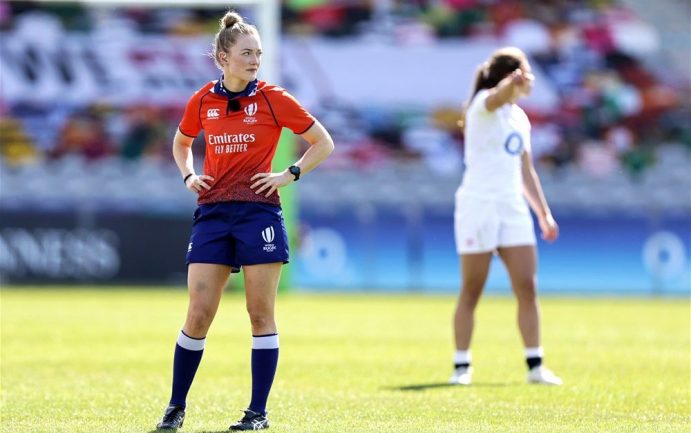@brianmoore666 is sure Rose Bernadou’s reappearance at the end of the England-France final was a stretch of the laws too far (‘ah, a tactical injury to bring France’s best scrummager back on’). Hollie Davidson chatted to the French team doctor who assured her of the fairness of the substitution.
Let us accept his word.
That conversation needed to go into the details of the nature of the injury that forced a player off the field. Did the doctor have a working knowledge of anatomical parts in English?
It’s doubtful that the referee did in French.
But any linguistic shortcomings in the conversation remind us of the gross inequalities still allowed to exist in international rugby. English rules. Why?
In a sport like tennis there is a limited number of statements an umpire needs to employ: ‘Not up’, ‘Let, second service’ and so on. In rugby there could be half a million statements a referee might turn to. You notice how an English-speaking referee addressing a non-English speaking captain will always end with ‘Okay?’, a word understood worldwide, in the pious hope the message has got across. How many captains have responded with a shake of the head? (‘Sorry, I didn’t understand a word you said’) – none.
The French are quite aware of the inferior position they are put in linguistically, and accept it as inevitable. In their 6 Nations games with an English-speaking referee, only one No 9 will be able to jabber in the ref’s ear at every stoppage. But it’s remarkable how fluent in English the leading French (Groizeleau), Spanish (Nievas) and Italian (Munarini) female referees are on the field.
How ironic that in a France-England game played in Grenoble, an injury to Joy Neville meant that Aurélie Groizeleau officiated, using English to both teams. Not so much ironic as grotesque. A conversation between a French referee and a French TMO will also be conducted in English. How does that add to the correctness of the final decision?
A World Rugby rethink on these linguistic discrepancies is long overdue.









